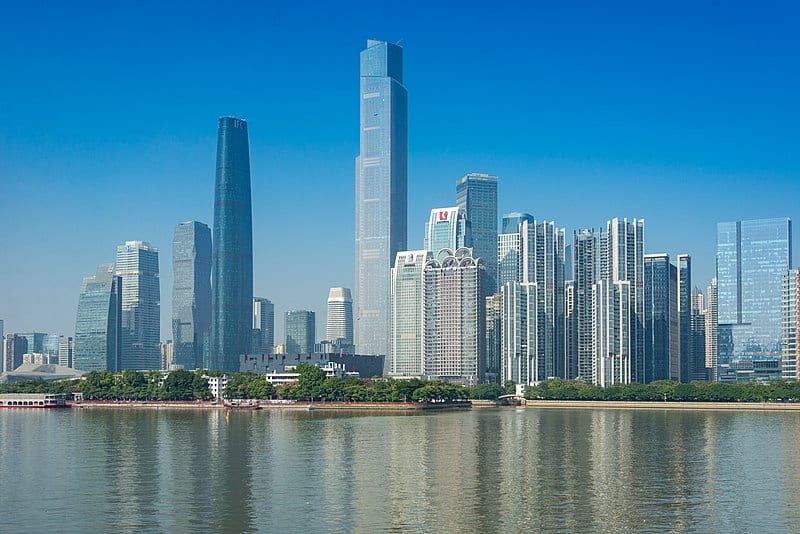The Chinese central government has unveiled plans to deepen reforms in three of the countries key free trade pilot zones.
On 24 May the State Council unveiled a trio of plans for advancing free trade pilot zone reforms in Fujian province, Guangdong province and Tianjin municipality, outlining a total of 55 major policy missions with respect to “high-level opening, expansion of new [economic] drivers, coordinated regional development and the simplification of administration and delegation of authority.”
The plans place especial emphasis upon opening of local finance sectors, following Beijing’s recent move to lift or rescind foreign ownership restrictions on key domestic financial institutions.
Sang Baichuan (桑百川), a professor at China’s University of International Business and Economics, said to Economic Information Daily that the three plans were distinguished by their specific tailoring to suit regional conditions.
While Guangdong province will focus on strategies for advancing the Guangdong-Hong Kong-Macau Great Bay Area and creating an open financial region, Fujian province will seek to create a key platform for the 21st Century Maritime Silk Road and promote economic and trade cooperation with Taiwan.
Tianjin municipality will focus on coordinating development with adjacent Hebei province and Beijing, and the establishment of an incubation base for new technologies.
The Guangdong province plan calls for the creation of a “new open economic model pioneer zone,” and proposes a total of 18 measures, including further liberalisation of the trade in services with Macau and Hong Kong.
“The Guangdong Free Trade Pilot Zone will fully exploit the advantages of systems innovation,” said Ouyang Weimin (欧阳卫民), vice-governor of Guangdong province at a state press conference.
“Under the Mainland and Hong Kong Closer Economic Partnership Arrangement (CEPA) framework, it will take the lead in further opening to the Hong Kong and Macau services sectors, expanding the scope for Hong Kong and Macau professional services including finance, accounting, law and architecture; introduce the Hong Kong construction project management model, categorise Hong Kong and Macau shipping lines as special domestic shipping lines for administrative purposes, continually achieve breakthroughs when it comes to impediments to systemic mechanisms for deep cooperation between Guangdong, Hong Kong and Macau, and play the role of demonstration and guidance for the Guangdong-Hong Kong-Macau Greater Bay Area.”
The Tianjin Free Trade Pilot Zone plan outlines 16 measures in areas including innovative factor allocation measures and the incubation of cutting-edge technologies, with the goals of establishing a new open economy, expanding new advantages for international competitiveness, and transforming the Beijing-Hebei-Tianjin area into a coordinated development demonstration zone.
Zhao Haishan (赵海山), vice-mayor of Tianjin municipality, said that over the past three years the city’s free trade pilot zone had already seen the basic completion of 90 reform goals.
Under the plan for deepening reform, Tianjin will expand opening of advanced manufacturing sectors including vehicles, aircraft and shipping maintenance, as well as the banking, insurance and financial services sectors.
The plan will also see the exploration of policies for financial leasing enterprise pre-tax deductions, the development of foreign exchange innovations for the leasing sector, as well as vigorous support for the creation of a parallel automobile import full industry services chain.
The Fujian free trade pilot zone will implement 21 measures that aim to further raise the level of government administration, deepen cross-strait economic cooperation, and accelerate the establishment of a core region for the 21st-century Maritime Silk Road.
Zheng Xincong (郑新聪), vice-governor of Fujian province, said that the free trade pilot zone had already implemented a total of 310 innovative policies, and that the next step would be to rear a slew of new projects in areas including digital information, petrochemicals, finance, culture and aged care



